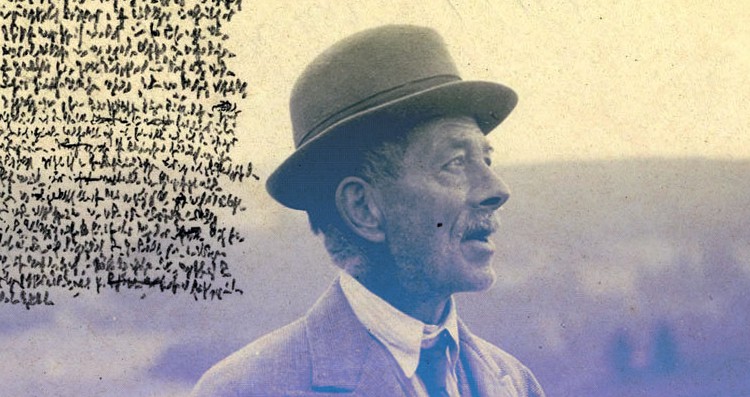Books & Culture
Review: Hush Hush, by Steven Barthelme

A collection of stories exploring anxieties about youth, adulthood, and the passing of time
In “Hush Hush,” the title story of Steven Barthelme’s new collection, Tilden, a lonely middle-aged drinker typical of the men who populate these stories, is lying in his daughter’s bed, flipping through fashion magazines full of fresh faces, when suddenly he smashes the bedside clock against a wall. Later, he and his estranged daughter, a twenty-something who recently turned up at his office to accuse him of paternity, drink a bunch of bourbon, break more shit, and then screw.
A violent anxiety about getting older pervades the stories in Hush Hush. Barthelme is the brother of Donald, the madcap post-modern master, and Frederick, the less well-known but equally interesting “K-Mart realist,” and the stories in this collection often jump from one end of this stylistic spectrum to the other. However, the best stories swing somewhere in between.
“Heaven” is an example of Steven Barthelme’s more playful side, with lines like “Heaven resembles a very large Days Inn where God is always wandering around saying, ‘Have you seen Jesus? Have you seen Jesus?’” It’s a line that could have been taken from one of his older brother Donald’s stories, or even the stories of George Saunders. Another story in this mode is “Siberia,” a monologue by a troubled but precocious ten-year-old who says, “Nietzsche is some freak dead guy. I won the spelling bee.” The most successful of these stories is “The New South,” a vicious takedown of carpetbagging writers in search of Americana.
“Interview,” which reads like a typical guy-feels-like-an-existential-fraud-so-leaves-his-wife-and-suburban-life-and-flees-to-Texas-where-real-people-live story, lacks the lived-in quality of Frederick Barthelme’s best work, his feel for place and class. But what does shine in this story are the teenagers who hang around the mechanic shop where Quinn, the narrator, finds work. The dialogue between these kids sparkles in comparison to anything said between Quinn and other adults. Even Quinn seems to realize this when he equates his new line of work to “the way I felt in elementary school.” Quinn seems to long for the childish world of possibility that the narrator from “Siberia” is chafing against.
Two stories, “Claire” and “In the Rain,” pulse like the heart of the collection precisely because they combine the best of Barthelme’s competing realist and absurdist tendencies. In “Claire,” we meet Bailey, a degenerate gambler who has borrowed eight grand from his ex, which of course he immediately takes to a gulf shore casino. Miraculously, Bailey’s luck turns, and he ends up doubling his money at blackjack. On the drive back home, he sucks on ice, telling himself that “[sucking on ice] meant you were orally fixated, too, which meant something — you wanted to suck a tit, you were childish, or something. Got that right…it’s not a bad thing, being childish.” He later describes of the feeling of winning money, but not having anybody to share it with as, “like being a kid and doing something really spectacular about which no one cared, like getting all the way home through the woods without ever touching the ground.” Here, we see Barthelme’s flair for poetic one-liners paired with real emotion, and the results are breathtaking.
The same can be said for “In the Rain,” another story of first love gone sour. It is also a story that sweats with the anxiety of a once-promising life that took a wrong turn somewhere back in the foggy distance. In “In the Rain,” the narrator’s wife has left him, but she has also left behind her cat — lost and dead cats haunt the later half of the collection — telling him that maybe the cat will teach him something. Rain falls, and floods come, and Slick goes missing. At first, the narrator isn’t too concerned because “cats went out and later they came back. They’re animals. You don’t ask them where they’ve been and what they’ve been doing.” He spends days out driving in the rain, looking for Slick, but his search turns up only a different dead cat, a tabby. The narrator moves the cat to the side of the road and then drives home, “wishing I had a cigarette the way you wish for a cigarette after a few years of not smoking, wistful, wanting to be some way you used to be.” Later that night, he goes back for the tabby and then sets it on his front lawn “as a sort of sort of signal, a crooked totem. A message to my cat, about what could happen.” Slick reappears the next morning, looking “like an embryo,” and “blubbering like a baby.” This is the most hopeful ending of all the stories in Hush Hush, the only one that offers the chance to return to the innocence of childhood. However, the narrator warns us, “It just kept on raining.”
Recommended if you liked: Circumnavigation, by Steve Lattimore, All Things, All at Once, by Lee K. Abbott
Read “In the Rain” by Steven Barthelme here at Recommended Reading.
***
— Eric Howell is a writer in Brooklyn.









